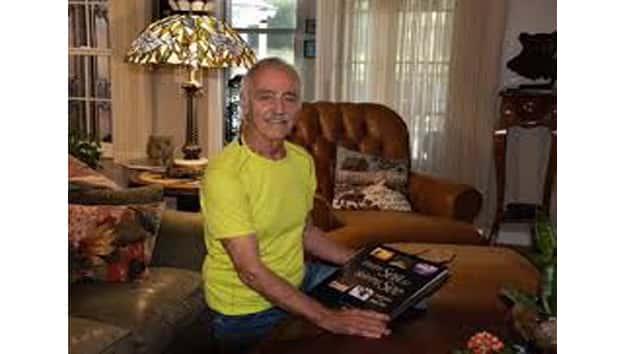
Paris, Tenn.–The Paris-Henry County Arts Council’s Photo Showcase is in its 28th year, sponsored by Dr. Danny and Martha Jo Kimberlin each of those years.
The Showcase–which is called “Captured Moments” will be on display at the W.G. Rhea Public Library from March 8 through April 3. Entry forms are due by March 2, and the opening reception and awards ceremony is at 2 p.m. on Sunday March 8. Anyone may enter and compete for cash awards in this professionally-judged show. Sunday reception is open to the public.
The following is an interview with Dr. Kimberlin about the history of the Photo Showcase and why it is important to the community.
Arts Council: This year’s Captured Moments is the 28th for the Arts Council’s photography showcase. You and Martha Jo have sponsored it every year. Can you explain the origins of the show and why its continuance is important to you?
Dr. Kimberlin: In 1992, Arts Council executive director Randy Bucy approached me about sponsoring a Photography Showcase that would be produced by the Council. This show would be a partner to the Artist’s Showcase which had been a popular Arts Council event for years. I was excited about the prospect of local photographers having a venue to show their work, and thus immediately agreed to the sponsorship. The next year was the first Photo Showcase. We are currently working on the 28th edition.
Arts Council: People’s interests and pastimes change over the years, influenced by free time, age, income, outside responsibilities, etc. What is the enduring appeal of photography?
Dr. Kimberlin: I have been taking travel pictures for 53 years, and still feel that I have a lot to learn about the art of photography. To really master something is quite difficult, which is a good thing. If it were easy, I’d find something else to do. I find the challenge of photography invigorating. That rare instant when I capture an exquisite artistic image is addictive. Like hitting a home run. I want to do it again and again. Also, I think photography is a wonderful means of simply sharing life’s ordinary moments, especially for those who prefer to just click their cell phones to do so. To heck with workshops and inch thick owner’s manuals. And sharing is convenient today. Billions of images have been uploaded to sites like facebook and instagram. And they don’t require a PhD in Photoshop to participate. Lastly, photography is the ultimate means to capture life’s memories and, not only share them, but archive them forever.
Arts Council: Can you talk a bit about how a person could start participating in photography, assuming he or she has no mentor?
Dr. Kimberin: For someone who is serious about the art of photography, the first necessity is to acquire the tools of the trade: a camera and lenses. They should purchase the best equipment they can afford, preferably Nikon or Canon, and then read and reread the owner’s manual. I also highly recommend subscribing to Outdoor Photography, Nature Photography, or a similar magazine. This is an excellent way to learn photography, and to become acquainted with the “gurus” who write and teach it. Studying the great masters is, I believe, the best way to learn the nuances of light and composition. Joining a photography club is a way to feel a part of the “community,” and to learn by interacting. There are books, online courses, and workshops galore. Find them with Google, Amazon, or by surfing your photography magazine. And finally, practice, practice, practice! Becoming a great photographer is like becoming a concert pianist, or a Roger Federer on the tennis court. It takes passion, persistence, and hard work over many years.
Arts Council: How has technology affected the tools and enjoyment of it?
Dr. Kimberlin: Technology has revolutionized photography, as it has so many things in life. Some of the basics remain unchanged, such as exposure, composition, light, and lenses etc. But there is an entirely new digital language to learn, as well as new skill sets, including computers for some people. The learning curve can be very steep! By far the most complex and exciting new skill set is post processing, often referred to by the nickname “photoshop.” Computer programs such as Photoshop, Lightroom, and many others have taken photography to artistic dimensions never dreamed of before the mid 1990s. A dull “raw” image can be loaded onto a computer, organized by Bridge, and then transformed by Photoshop into a picture of exquisite beauty and mystery. It’s like magic. And like photography, post processing is never truly “mastered.” It is a lifetime of tears and toil, punctuated by moments of blissful satisfaction. Just the way it should be.
Arts Council: What is the most important advice you have received about photography?
Dr. Kimberlin: The old adage – “f8 and be there.” In other words, know how to work your camera, and then go out in the field and take pictures. Another way to say it is “PRACTICE!” The exclamation mark is optional. Maybe.




